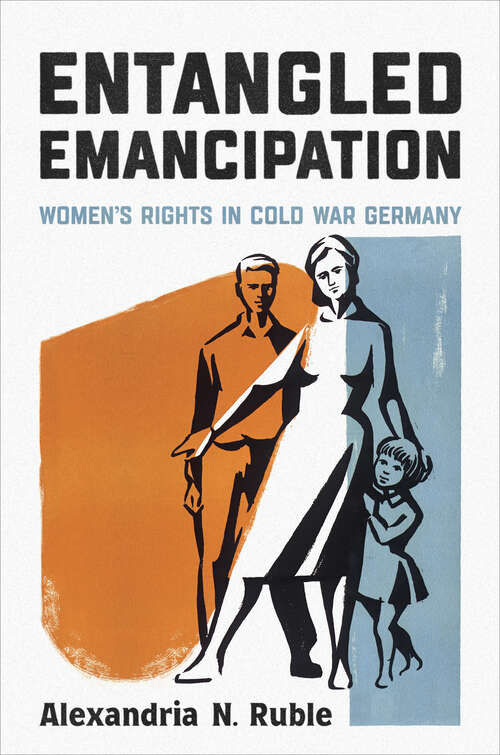Entangled Emancipation: Women’s Rights in Cold War Germany (German and European Studies #52)
By:
Sign Up Now!
Already a Member? Log In
You must be logged into Bookshare to access this title.
Learn about membership options,
or view our freely available titles.
- Synopsis
- In 1900, German legislators passed the Civil Code, a controversial law that designated women as second-class citizens with regard to marriage, parental rights, and marital property. Despite the upheavals in early twentieth-century Germany – the fall of the German Empire after the First World War, the tumultuous Weimar Republic, and the destructive Third Reich – the Civil Code remained the law of the land. After Nazi Germany’s defeat in 1945 and the founding of East and West Germany, legislators in both states finally replaced the old law with new versions that expanded women’s rights in marriage and the family. Entangled Emancipation reveals how the complex relationship between the divided Germanys in the early Cold War catalysed but sometimes blocked efforts to reshape legal understandings of gender and the family after decades of inequality. Using methods drawn from gender history and discourse analysis, the book restores the history of the women’s movements in East and West Germany. Entangled Emancipation ultimately explores the parallel processes through which East and West Germany reimagined, negotiated, and created new civil laws governing women’s rights after the Second World War.
- Copyright:
- 2023
Book Details
- Book Quality:
- Publisher Quality
- ISBN-13:
- 9781487550318
- Related ISBNs:
- 9781487550264, 9781487550295, 9781487550271
- Publisher:
- University of Toronto Press
- Date of Addition:
- 11/10/23
- Copyrighted By:
- University of Toronto Press
- Adult content:
- No
- Language:
- English
- Has Image Descriptions:
- No
- Categories:
- History, Nonfiction, Social Studies, Law, Legal Issues and Ethics
- Submitted By:
- Bookshare Staff
- Usage Restrictions:
- This is a copyrighted book.
Reviews
Other Books
- by Alexandria Ruble
- in History
- in Nonfiction
- in Social Studies
- in Law, Legal Issues and Ethics
